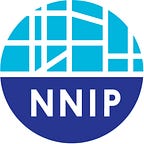Creating Effective Partnerships between Community Partners and Universities
by Sonia Torres Rodríguez and Jake Cowan
A publication of the Local Data for Equitable Recovery Resource Hub
Childcare is essential for supporting working parents and rebooting the economy. A unique collaboration in Cleveland uncovered how COVID-19 affected the health and sustainability of the region’s childcare system and provided new evidence to help advocate for the sector. This collaboration provides a model to help other places understand their own childcare systems and structure effective community-university partnerships to tackle a range of local issues.
Starting Point, northeast Ohio’s childcare resource and referral agency, and the Center on Urban Poverty and Community Development at Case Western Reserve University (CWRU), longtime partners, collaborated in 2020 for the Using Data to Inform Local Decisions on COVID-19 Response & Recovery grant program to document childcare supply and demand. By prioritizing practioners’ needs in their COVID-19 response, they brought their collective work to a new level.
Starting Point regularly surveys childcare agencies about current operations and capacity. In previous years, CWRU would independently analyze the survey data and write a report. The new grant funding allowed Starting Point to lead the research design and shape the analysis, creating the understanding the region needed about the immediate impacts of COVID-19. Rob Fischer, codirector of CWRU’s Center on Urban Poverty and Community Development, says, “Prior relationships that involved Starting Point were often with research that was being done to Starting Point. This was the first time where Starting Point was in the driver’s seat of the study as the lead grantee. This changed the dynamic in a really great way.”
CWRU analyzed the survey data by neighborhood, combining it with other neighborhood-level data, such as density of essential workers, single-parent households, and other potential indicators of higher COVID-19 exposure risk and socioeconomic vulnerability (see technical notes of the Story Map for the employment category calculation). CWRU, Starting Point, and an advisory committee of early childhood stakeholders collaboratively selected neighborhood indicators to include in the analysis.
Starting Point also worked closely with CWRU in deciding how the data were presented and what story they told. CWRU learned the importance of collaborating with a community partner, like Starting Point, to shape project goals and research questions. Starting Point wanted the findings to emphasize what neighborhoods had in common, rather than how conditions varied across neighborhoods. Though variations are important to understand, Starting Point needed the findings to reflect commonalities to tell a story that would resonate with key stakeholders.
The deeper collaboration among these two partners also benefited Starting Point. CWRU brought fresh eyes to their data, bringing valuable neighborhood focus and expertise with external data. Debbie Fodge, Starting Point’s assistant director, noted, “This project enabled us to look at the data a little bit deeper. We really do like to look at childcare capacity and enrollment by specific neighborhoods and where the most need is. Case [CWRU] has just been a great partner in allowing us to do that with their research and their access to data.”
CWRU and Starting Point shared findings about key challenges and opportunities with stakeholders in the childcare community. The team produced an interactive Story Map that includes a detailed analysis of the survey data on the supply and demand of childcare, along with other neighborhood data. Rob Fischer said, “If we would have been left to our own devices, we could have fashioned a big report.… Then we would have gone back to Starting Point and said, ‘Aren’t these interesting data? Do you think you could use them?’ In this process, it was about deciding what we wanted from the data prospectively. It challenged us as academic researchers to pay attention to practice perspectives and learn how that makes for a stronger product.”
The project assisted childcare program operators, informed regional foundations, and affected advocacy efforts for supporting early childhood development providers. An early result from this work was a successful advocacy effort for childcare workers to get priority access to the COVID-19 vaccine. Ultimately, research and community partnerships can be a powerful component of assessing and responding to community needs during crises. For the partnerships to be most successful, the organizations must invest in building trust over time and let community leaders set the research agenda.
We thank Starting Point and Case Western Reserve University for their contributions to this blog post. The two organizations are grantees of the Robert Wood Johnson Foundation’s Using Data to Inform Local Decisions on COVID-19 Response & Recovery program.
